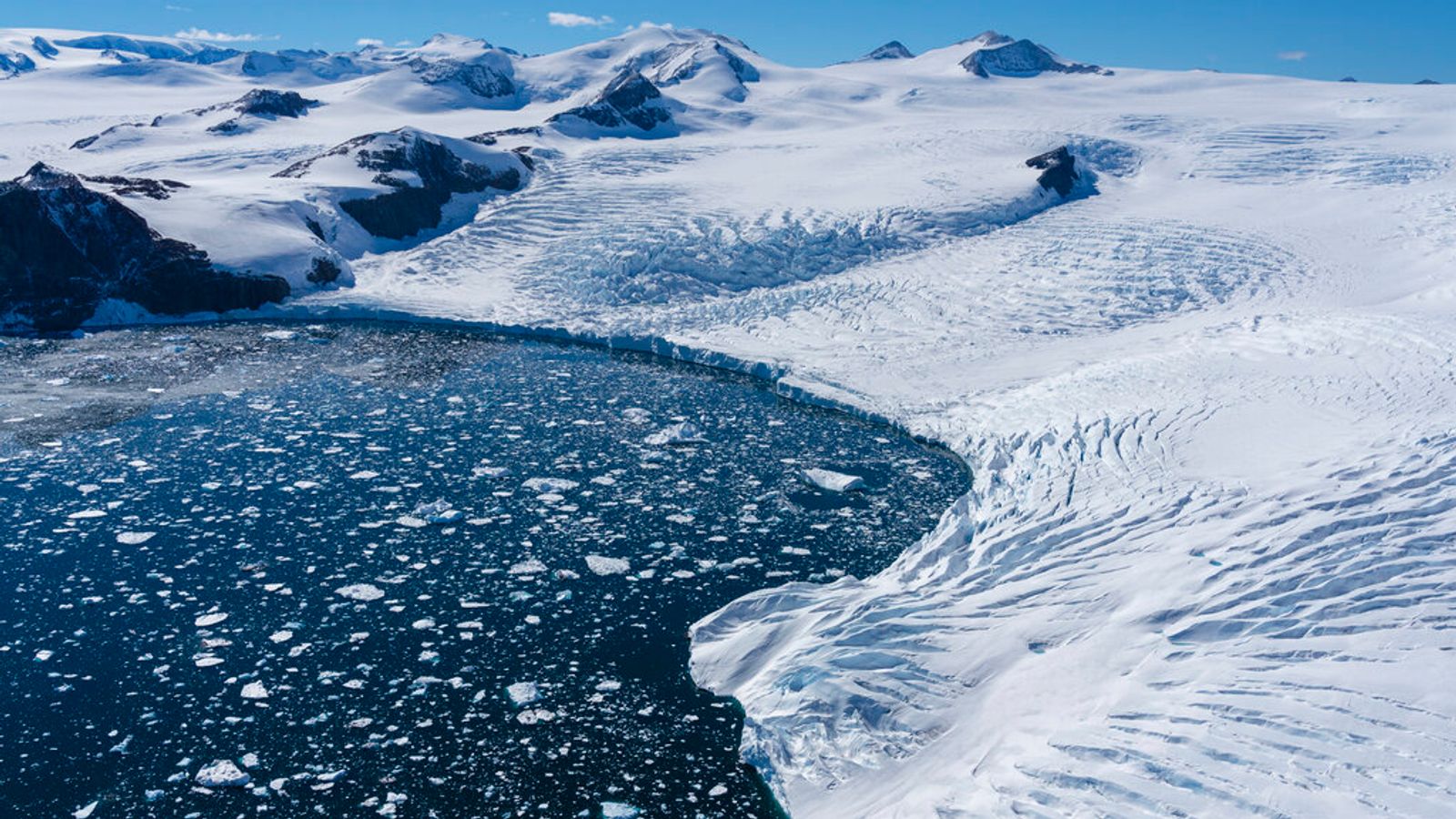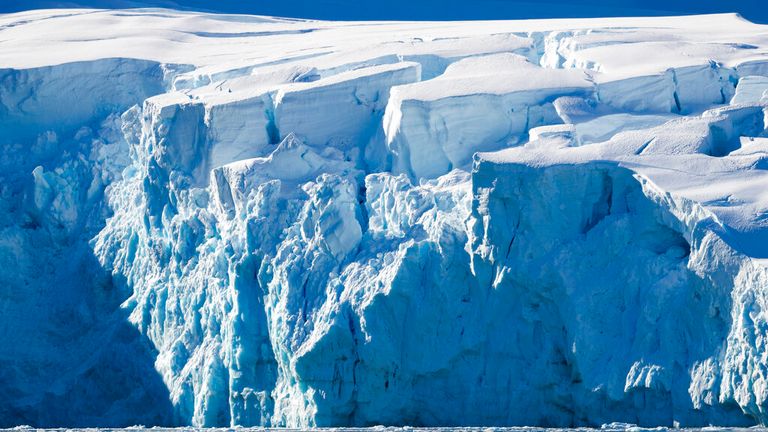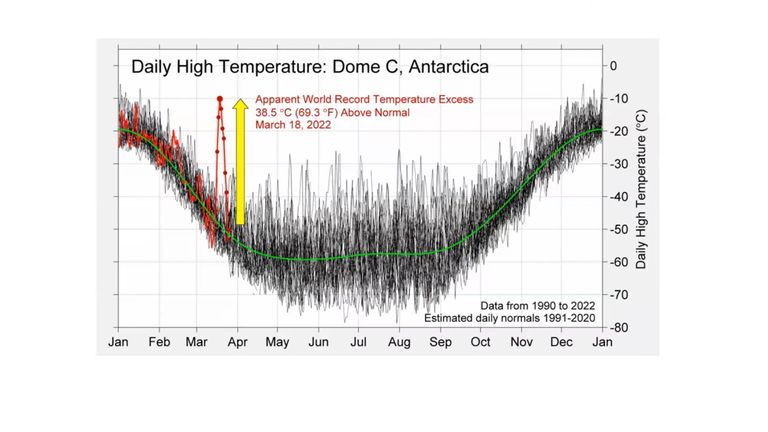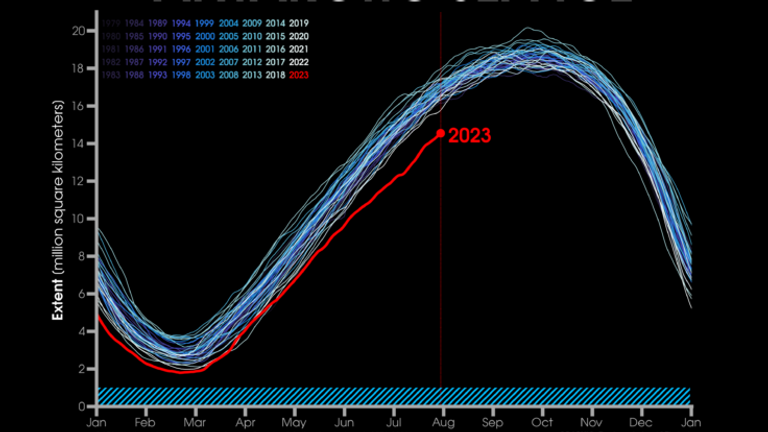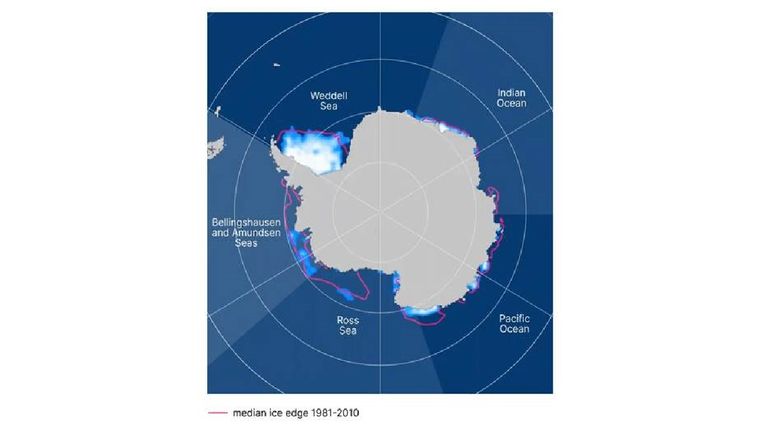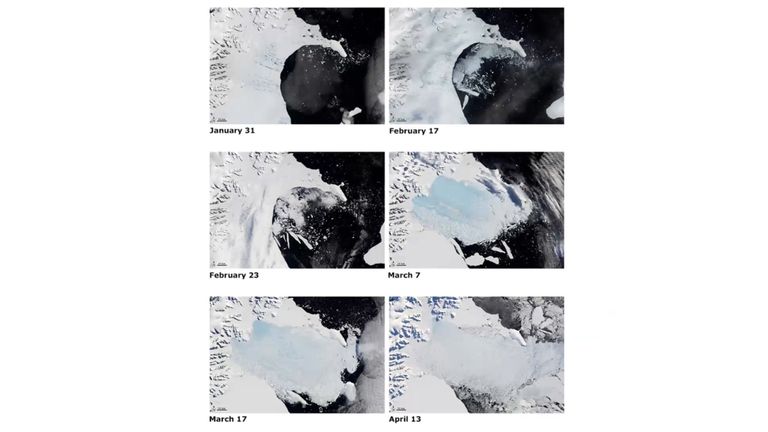“Tumbling” records in Antarctica must be taken more seriously because of their “cascading” global impacts, a group of scientists asked by the Foreign Office to investigate the “unprecedented” changes has warned today.
After enormous icebergs up to a quarter the size of Wales appeared to break off with “increasing frequency”, the Foreign Office commissioned the review, which has confirmed extreme events there are happening more often and are more intense.
Jane Rumble, head of polar regions at the UK Foreign, Commonwealth & Development Office, said: “What happens in Antarctica does not stay in Antarctica.
“It has global consequences and therefore it’s important to raise awareness of what Antarctica is going through.”
Professor Martin Siegert, glaciologist at the University of Exeter, said they were extremely worried about “the increasing intensity and frequency of extreme events and the cascading influences that they have in other areas”.
He said we should be “deeply concerned about the environment of Antarctica in the years that are coming under continued fossil fuel burning”.
They wanted to “provoke the scientific community… to start taking extreme events in Antarctica a lot more seriously than they have been”, added Prof Siegert.
“There’s a real danger, I think, in the years coming ahead that Antarctica starts to behave in a way that looks a lot more like the Arctic… that it stops acting as a refrigerant for the planet, and it starts acting as a radiator.”
The scientists are worried about three extremes in particular.
‘Absolutely enormous heatwave’
The most extreme heatwave ever recorded globally struck East Antarctica in March 2022, sending surface temperatures soaring 38.5°C hotter than they should be.
Instead of an expected roughly -50C, they reached -10C.
Had it happened in summer, it would have begun melting the surface of the ice sheets, which scientists said they have never seen before.
The heatwave was “absolutely enormous”, said Prof Siegert. The temperature was not only far above the average but also far hotter even than previous records.
‘Tumbling’ sea ice cover
Records for sea ice cover have been “tumbling” since around 2016.
New record lows have been set three times in just seven years.
“Even the years that haven’t been record-breaking have been unusual based on what we have learned to expect based on previous decades,” said Dr Caroline Holmes, a polar climate scientist at British Antarctic Survey.
As sea ice, which floats on the ocean surface, melts, it stops reflecting heat and light from the sun and reveals more of the dark sea surface, which absorbs heat.
The chart below shows “just how unusual” sea ice cover in 2023 has been.
Sea ice cover at the start of 2023, in Antarctic summer, was at “record low already, but then it has dropped really a long way from anything that we’ve previously expected”.
“We’re seeing really a new world in Antarctic sea ice,” Dr Holmes added.
The extremes are not isolated but affect extremes in the ocean and the atmosphere too, she said.
‘Dramatic’ ice shelf collapse
The scientists also warned of the “dramatic” collapse of ice shelves Larsen A and B on the Antarctic Peninsula, and the Conger Ice Shelf in East Antarctica, which can push up atmospheric and ice temperatures.
Ice shelves are the part of a glacier or ice sheet that has flowed out to sea where they float on the surface.
“We’ve seen dramatic changes in the extent of ice shelves around Antarctica over the years,” said Dr Anna Hogg, associate professor in the School of Earth and Environment at Leeds University.
The melt “impacts populations that live around coastlines all around the world” via coastal flooding erosion and storm surges, she said.
Dr Hogg also warned of “unprecedented” melting of the surface of the ice that sits on land, which can either run off to the ocean, warm the snow pack or seep down and lubricate the underside of the ice, allowing it to flow faster into the ocean, which can melt it from beneath.
Melting ice sheets in Greenland and Antarctica have raised global sea level by 1.8cm since the 1990s and are matching worst-case climate warming scenarios.
If these rates continue, the ice sheets are expected to raise sea levels by a further 17cm and expose an additional 16 million people to annual coastal flooding by the end of the century.
The impact of climate change
Because of Antarctica’s harsh environment and remote location, there is less data available to unequivocally link events such as these with human-induced climate change.
But Prof Siegert said: “I think it’s reasonable to assume that with the Antarctic heat event that we’ve seen, that is the sort of thing that has been expected with global heating because of burning fossil fuels and it has happened.”
Watch The Climate Show with Tom Heap on Saturday and Sunday at 3pm and 7.30pm on Sky News, on the Sky News website and app, and on YouTube and Twitter.
The show investigates how global warming is changing our landscape and highlights solutions to the crisis.
